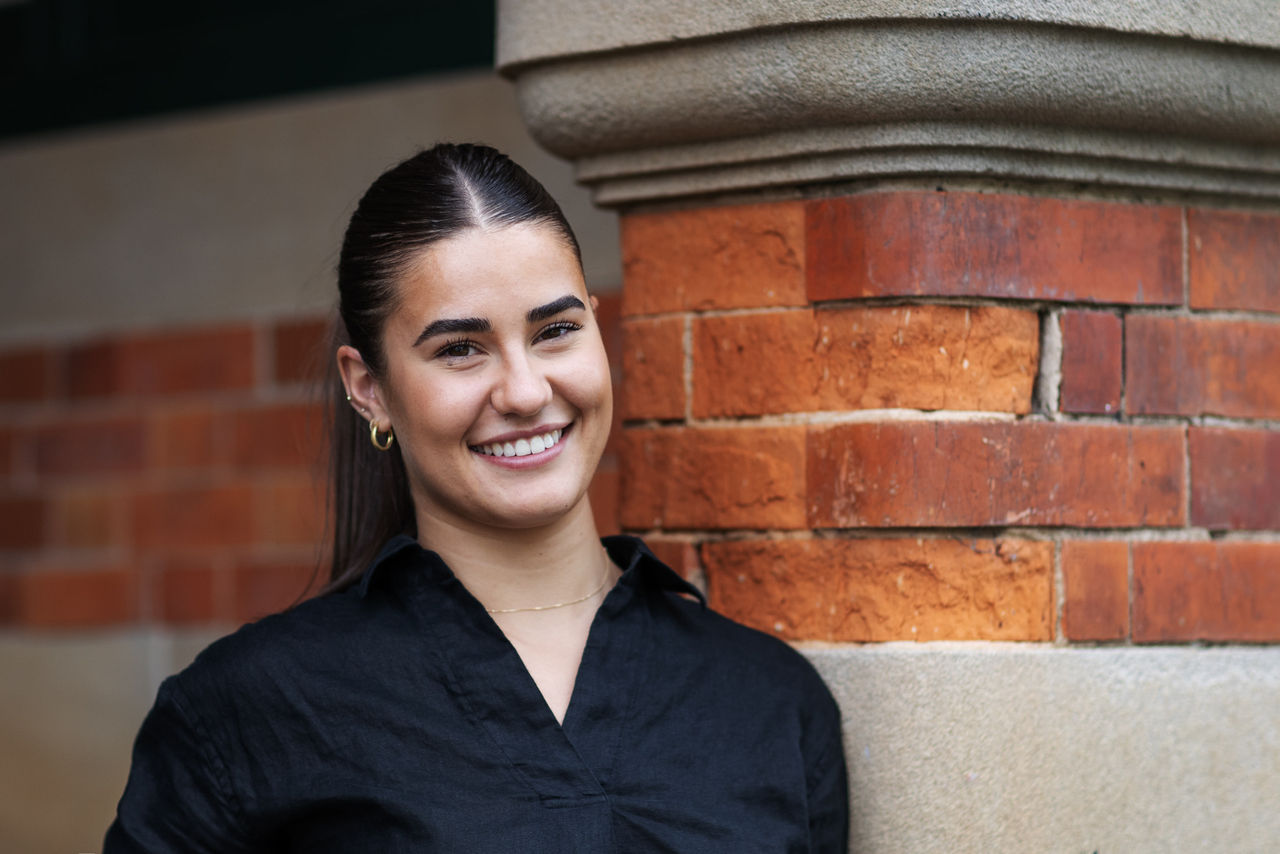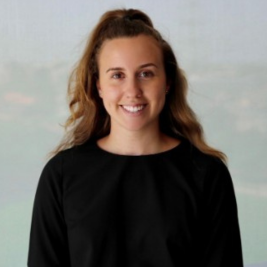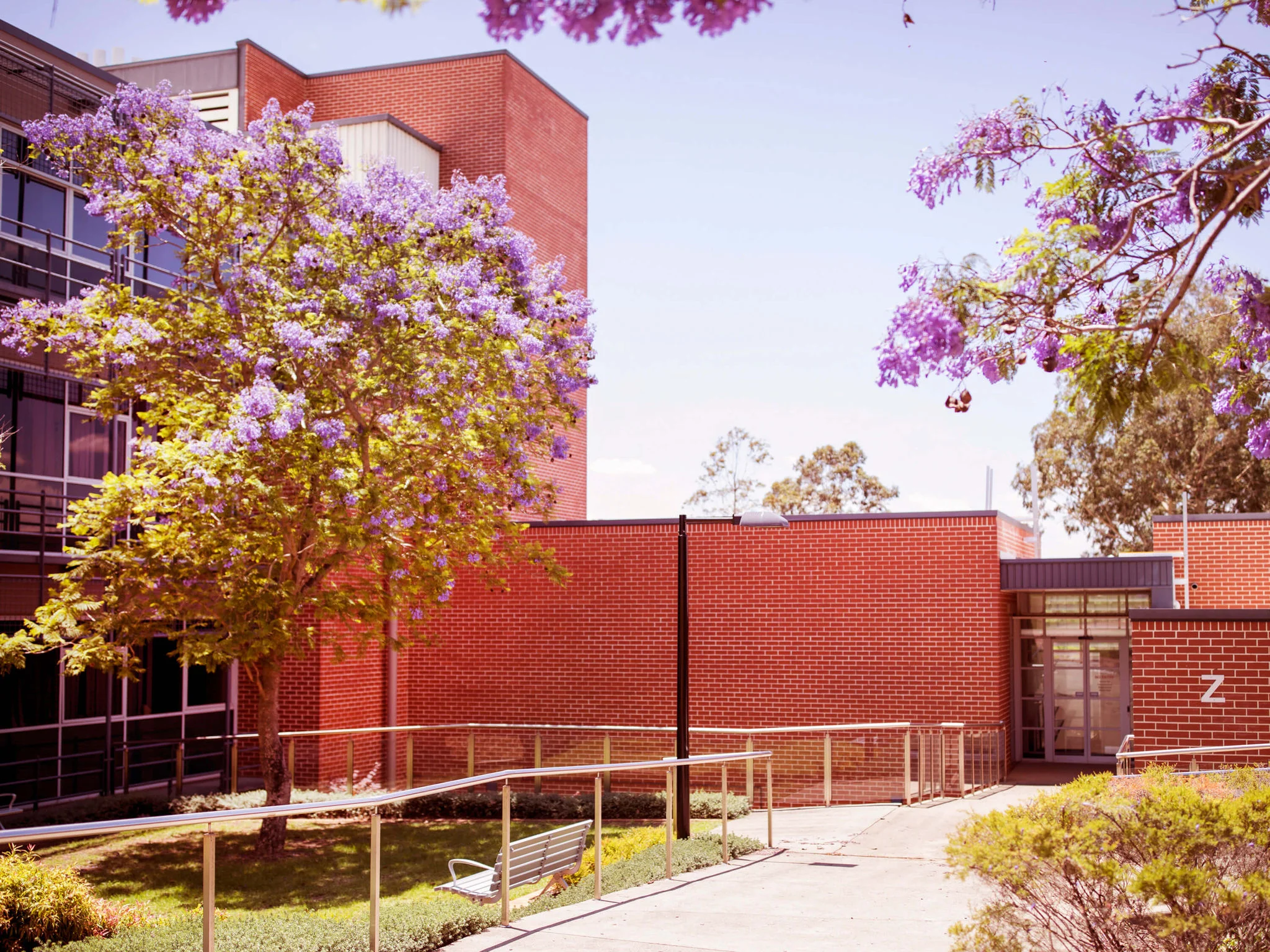Our Bachelor of Health Science combines study with hands-on experience and allows you to major in one or two specialisations in the areas of public health, health promotion, health services management, recreational therapy and clinical sciences. The program is designed to give you the skills you need to work with clients and develop great services which promote health and well-being.
Advance human health
Health Services Management graduates are eligible for membership of the Australasian College of Health Service Management.
Recreational Therapy graduates are eligible for membership of Australian Recreation Therapy Association.
Students who have completed diploma studies at TAFE or an approved college provider may be eligible for up to 60cp in place of their electives.Student who have completed the Diploma of Leisure and Health may receive credit for the Recreational Therapy program. Student who have completed the Diploma of Management, Business or Leadership may receive credit for the Health Services Management program.
Pathways from The College
Students who enrol into the Integrated Diploma/Bachelor of Health Science at the College receive 80cp credit toward the bachelor degree. They commence the program at The College and then transition to the university campus in their second year.
Our Health Science students have a wide range of opportunities to further their studies and gain valuable experience by studying abroad. Popular experiences include the 3-week Public Health Study Tours in Indonesia and Mexico, Community Development Programs in the Philippines and Malaysia and full exchange study semesters in the US, Italy, London and New Zealand.
What you can expect to study
The program structure is outlined in our handbook. Here you can view all of the subjects you will be studying.
The Bachelor of Health Science gives you practical, hands-on experience in the field of health science. With the flexibility to switch between majors at the end of your first year. Studying health science is also an ideal pathway to a range of other health degrees through Western’s internal program transfer. As part of the program, you will gain real-world experience through work placements in a diverse range of health settings, allowing you to increase your expertise and employability.
Design your degree with the end in mind
To graduate with an undergraduate degree in Health Science you are required to complete enough subjects to earn 240 credit points, in most cases subjects are worth 10 credit points each. If you have completed prior diploma or university study in another program this can be credited towards this total, reducing the number of subjects you will need to complete to graduate.
Health Science is made up of a core group of 8 subjects worth 80 credit points that focus on the foundation knowledge and skills required by all health professionals. These subjects focus on population health, health professional competencies, communication, anatomy and physiology, human development across the lifespan, diseases, psychology, research and evidence and project development and management. All Health Science students share the same core subjects and some of these are also shared with students from our clinical health programs.
You need to choose a testamur major. This is the primary focus of your degree and what is written on your degree at graduation. Choosing the testamur major is an important step as it will determine the types of roles you will be eligible for after graduation. Health Science has 5 testamur majors. Four of these are industry-based health professional roles which will qualify you to enter the workforce once you graduate. These testamur majors are public health, health promotion, health services management and recreational therapy. Alternately, the clinical sciences testamur major has been designed as a pathway degree, to help you progress to post graduate study in clinical health areas. It has been designed specifically to ensure foundation skills and presumed knowledge areas are covered.
Each testamur majors adds an additional 80 credit points to your program, except for recreational therapy which adds 120 credit points. So, if you choose:
- Public Health: 80 core + 80 testamur major =160cp
- Health Promotion: 80 core + 80 testamur major = 160cp
- Health Services Management: 80cp core + 80 testamur major = 160cp
- Clinical Sciences: 80 core + 80 testamur major = 160cp
- Recreational Therapy: 80 core + 120 testamur major = 200cp
You can choose from the following majors:
Health Promotion extends beyond raising awareness of healthcare issues. It also involves developing and implementing strategies for communities, individuals and policy makers to support good health and wellbeing. Health Promotion graduates help address health inequities in communities, link individuals and communities with healthcare, and assist individuals and communities to follow healthy behaviours, working across sectors and engaging collaboratively with communities to do so. Health promotion projects are as diverse as injury prevention, skin cancer prevention, HIV/AIDS awareness and community development. Health promotion professionals work in diverse settings including healthcare, workplace and educational facilities, community, local, state and federal government, private industry and not-for profit organisations. The program combines studies of health politics and planning, health promotion practice and public health with a comprehensive foundation in the health sciences to develop the professional competencies important for ethical and safe practice. Students will develop the skills required to work in multidisciplinary teams. Evidence-based practice is one of the most important trends in healthcare today and a strong feature of the program.
Students may combine this testamur major in health promotion with a non-testamur major or minor in public health, physical activity, sport development, recreation and health, human nutrition or the option to choose up to 80cp of electives based on the student’s interest.
The program includes 140 hours of professional practice placement.
Health Services Management plays a vital role in society ensuring investment in health is well spent, and health services are effective, efficient and sustainable. It puts management studies in the distinctive context of the health sector to integrate clinical understanding, business management skills and knowledge of the health care system and policy development. As a Health Services Management graduate, you can work in quality improvement, project and resource management, and digital health.
Our program offers 280 hours of Work Integrated Learning and is accredited by the Australasian College of Health Service Management.
You will have the opportunity to study health, informatics, human resources and occupational safety to extend your interdisciplinary knowledge and skills and ensure a readiness for the health management workforce.
You can combine this testamur major in health services management with a non-testamur major or minor in public health or health promotion, human resources development, physical activity, sport development, recreation and health, health informatics, or choose up to 80 credit points of electives based on your interests.
Recreational Therapy links leisure and health improvement. As a Recreational Therapy graduate you will work with patients to use leisure activities to improve health and life quality in rehabilitation centres, psychiatric subjects, special schools, day care centres, aged care facilities, schools, correctional centres, private practice and in a range of local government or community services settings.
Recreational Therapy combines theory and practice in learning, education programming, aged care, disability and mental health, with a comprehensive foundation in the health sciences. You will develop the professional skills important for ethical and safe practice and high-quality care. Evidence-based practice is one of the most important trends in healthcare today and is a strong feature of the program.
The recreational therapy program is offered on campus or fully online. You can combine this testamur major in Recreational Therapy with a minor called Leisure for Diverse Groups (recommended), or health promotion, public health, physical activity, or choose up to 40 credit points of electives based on your interests.
The program includes a total of 720 hours fieldwork placement to attain valuable practice-based experience. This is made up of 160 hours of compulsory practical placement in second year and a third-year internship of 560 hours
Public health is the science of improving health for individuals and their communities through disease prevention. This work is achieved by promoting healthy lifestyles, researching disease prevention, conducting population health assessment and measurement, improving environmental health, engaging the community and detecting, preventing and responding to infectious diseases. As a Public Health graduate, you will get to work in a variety of settings, including national and state health departments, community organisations and the global health sector. The Public Health major builds your knowledge of the biological, social, cultural, economic and physical factors that underpin the health of a population and how to promote health for all. You will also develop and use skills in epidemiology and biostatistics, surveillance and prevention, and public health policy.
The program includes 140 hours of professional practice placement.
You can combine this testamur major in public health with a non-testamur major or minor in health promotion, physical activity, sport development, recreation and health, health informatics, human nutrition, health practice management or choose up to 80 credit points of electives based on your interests.
The Clinical Sciences major provides you with an opportunity to study a range of clinical health sciences subjects, providing a pathway into a clinical health career.
The subjects have been specifically selected to allow you to obtain the assumed knowledge requirements of undergraduate clinical health programs such as occupational therapy, podiatric medicine and speech pathology. Completion of the Bachelor of Health Science (Clinical Sciences) provides eligibility for admission, to most post-graduate health programs. The Clinical Sciences major focusses study on anatomy and physiology, pathophysiology, neuroanatomy, functional anatomy, abnormal psychology, motor skill acquisition and professional reasoning.
You will study a range of core subjects that focus on professional and ethical conduct, social determinants of health, psychology and evidence-based practice. This ensures a comprehensive foundation for practice in the health sector. You will also complete 80 credit points of electives which can be used to pick up a second major, or minors in public health, recreation, exercise and sports development or health management. These flexible study options help diversify your knowledge base and skill set. The health science core subjects and electives may be available to students online. The program is interdisciplinary in nature and travel between campuses for classes may be required.
You can combine this testamur major in clinical sciences with a non-testamur major or minor in public health, health promotion or health services management, physical activity, sports development, recreation and health, health informatics, or choose up to 80 credit point of electives based on your interests.
Career Opportunities
As a graduate of this degree, you can look forward to a broad range of exciting career opportunities in different sectors and industries. Below are some examples of the possible careers you can pursue with this degree:
- Health Service Manager
- Project Manager
- Health Administrator
- Public Health Officer
- Community Health Worker
See where a Bachelor of Health Science can take you
Joana Andre Garrido
Joana Andre Garrido completed the Diploma in Health Science at The College in 2015 before moving onto the Bachelor of Health Sciences (Health Services Management) at Western Sydney University in 2017.
She was the successful recipient of ACHSM Health Management Internship 2018-2019 and completed a Master in Health Management at UNE before returning to Western Sydney University, where she is currently studying a Master of Health Science (Digital Health). Joana is currently working as a Patient and Carer Experience Officer, Clinical Governance in the Western Sydney Local Health District.
Adam Wilson
Adam Wilson graduated from his Recreational Therapy program in 2019. Prior to this he completed a Sports and Exercise Science degree. He pursued Recreational Therapy after being exposed to and identifying the benefits of this role at his workplace. As a recreational therapist at Royal Rehab, Adam focuses on increasing the physical function and mental wellbeing of people with spinal cord injuries through their leisure pursuits. He does this by using assistive technology and adaptive techniques.
Patricia Fleming
Patricia Fleming is a proud aboriginal woman of the Gamilaroi and Wailwan people of NSW. She gained entry via a TAFE diploma pathway and completed the Bachelor of Health Science with a double major in Public Health and Health Services Management.
In 2019, she won the Grace Saleau Prize from the Australasian College of Health Services Management for the best grade point average in a health services management undergraduate program in Australia. She was successful in being offered a 3 year graduate internship as an Aboriginal Population Health Trainee for SWSLHD. She is currently enrolled in a Master of Public Health.
Entry requirements for domestic students
Applicants who have undertaken studies overseas may have to provide proof of proficiency in English. Local applicants who are applying through the Universities Admissions Centre (UAC) will find details of minimum English proficiency requirements and acceptable proof on the UAC website. Local applicants applying directly to the University should also use the information provided on the UAC website. Find out more here.
Admission
- Assumed knowledge: Any 2 units of English
Special Requirements - NSW Health Legislative Pre-requisites
To enrol in this program, students must meet Western Sydney University program requirements. To attend a health-related placement in this program, Special Legislative Requirements will be assessed from the first year of study.
Visit the Special Requirements webpage for more details.
To be able to undertake placement in any NSW Health facility you must be assessed as compliant with NSW Health student placement policy in the first year of your program, regardless of when you expect to go on your first placement. Access and read the NSW Student Compliance Information Booklet.
Please ensure that you
- Find your existing National Police Check or apply for one
- Gather documentary evidence of your vaccination history
- Print and compete all relevant NSW Health forms relevant to the campus you are enrolled at or online enrolment requirements
- Follow booklet instructions on how to have your compliance documents assessed by NSW health staff.
Contact your School for further details regarding your School’s requirements, if any, such as
- If you live outside of NSW or Australia and need to meet your state, territory or country’s compliance requirements
- If you need to meet different state, territory or country compliance requirements.
- NSW Working with Children Check (WWCC) or other state equivalent, valid for your entire program.
- Current approved first aid certificate valid for your entire program - approved program providers can be found at the Government Training website
- Other non-health related requirements
Student Compliance Resources are also available on the Placements Hub web page (NSW students only).
Please consult the handbook for more information.
Entry requirements for international students
**The Part-time option is not available to International Students on a Student Visa.
Applicants who have undertaken studies overseas may have to provide proof of proficiency in English. Local applicants who are applying through the Universities Admissions Centre (UAC) will find details of minimum English proficiency requirements and acceptable proof on the UAC website. Local applicants applying directly to the University should also use the information provided on the UAC website.
International students currently completing an Australian Year 12 in or outside Australia, an International Baccalaureate in Australia or a New Zealand National Certificate of Educational Achievement (NCEA) level 3 must apply via UAC International.
All other International applicants must apply directly to the University via the International Office.
International students applying to the University through the International Office can find details of minimum English proficiency requirements and acceptable proof on their website.
Overseas qualifications must be deemed by the Australian Education International - National Office of Overseas Skills Recognition (AEI-NOOSR) to be equivalent to Australian qualifications in order to be considered by UAC and Western Sydney University.
Admission
- Assumed knowledge: Any 2 units of English
Special Requirements - NSW Health Legislative Pre-requisites
To enrol in this program, students must meet Western Sydney University program requirements. To attend a health-related placement in this program, Special Legislative Requirements will be assessed from the first year of study.
Visit the Special Requirements webpage for more details.
To be able to undertake placement in any NSW Health facility you must be assessed as compliant with NSW Health student placement policy in the first year of your program, regardless of when you expect to go on your first placement. Access and read the NSW Student Compliance Information Booklet.
Please ensure that you
- Find your existing National Police Check or apply for one
- Gather documentary evidence of your vaccination history
- Print and compete all relevant NSW Health forms relevant to the campus you are enrolled at or online enrolment requirements
- Follow booklet instructions on how to have your compliance documents assessed by NSW health staff.
Contact your School for further details regarding your School’s requirements, if any, such as
- If you live outside of NSW or Australia and need to meet your state, territory or country’s compliance requirements
- If you need to meet different state, territory or country compliance requirements.
- NSW Working with Children Check (WWCC) or other state equivalent, valid for your entire program.
- Current approved first aid certificate valid for your entire program - approved program providers can be found at the Government Training website
- Other non-health related requirements
Student Compliance Resources are also available on the Placements Hub web page (NSW students only).
Please consult the handbook for more information.
Indicative annual fee
A Commonwealth Supported Place (CSP) is one that is subsidised by the Commonwealth and applicable only to Domestic students. This means that the Australian Government pays part of your fees towards your program, therefore reducing your program fees, and the remaining amount is paid by you, this is considered your Student Contribution.
The fee estimates provided are indicative only and subject to change. These estimates are based on the current fee structures for a normal full time study load. However, the final fees may vary depending on several factors, including the specific subjects chosen, the duration and timing of study, and annual fee adjustments (subject to Commonwealth student contribution band rates). Please note that these estimates do not include the Student Services and Amenities Fee. We encourage all prospective and current students to consult with our Student Services Hub for the most current fee information.
As a multi-campus institution, Western Sydney University and its entities reserves the right to alter the location of its programs between campuses and other locations as necessary.
To work out how much your Student Contribution will be before you study, you will first need to find out the Student Contribution band your subjects fit into based on their general discipline area.
You can then calculate your student contributions to work out the total amount of your contribution.
The Higher Education Loan Program (HELP) is a range of loans introduced by the Australian Government from 2005 to provide fee payment assistance to eligible students. Loans are for Australian citizens studying in Australia or overseas. Permanent residents who hold a humanitarian visa are also eligible if studying in Australia.
If eligible you may be able to defer all or part of your Student Contribution through the HECS-HELP loan program. You may also be eligible for OS-HELP if undertaking studies overseas.
New Zealand citizens and holders of an Australian permanent resident visa (other than an Australian permanent humanitarian visa) are generally not entitled to HECS-HELP assistance. If you are a New Zealand citizen or permanent resident your Student Contribution amount must be paid in full by the census date.
However, the Australian Government has passed new legislation that changes the way some New Zealand citizens, who hold a Special Category Visa (SCV), studying in Australia will pay their fees. More information is available on the Changes to fees for New Zealand Citizens webpage.
Apply as a Domestic Student
If you are a domestic student, you can apply through our Western Application system which is free of charge.
Domestic students are:
- Australian Citizens
- New Zealand Citizens
- Australian permanent residents
- Australian permanent humanitarian visa holders
Scholarships
Western Sydney University recognises and rewards students who demonstrate community engagement, outstanding academic ability and superior leadership skills. Donor-funded scholarships are also available, providing support for students based on both academic achievements and equity considerations. There are also scholarships available for specific degrees.
The fee estimates provided are indicative only and subject to change. These estimates are based on the current fee structures for a normal full time study load. However, the final fees may vary depending on several factors, including the specific subjects chosen, the duration and timing of study, and annual fee adjustments (subject to Commonwealth student contribution band rates). Please note that these estimates do not include the Student Services and Amenities Fee. We encourage all prospective and current students to consult with our Student Services Hub for the most current fee information.
As a multi-campus institution, Western Sydney University and its entities reserves the right to alter the location of its programs between campuses and other locations as necessary.
Apply as an International Student
If you are an international student, you can apply for free through our international student application system or through an agent representative.
International students are:
- Not an Australian citizen;
- Not a New Zealand citizen; and
- Not a permanent resident of Australia.
If you are an international student completing the Australian HSC, IB or NCEA, apply direct via UAC International.
Admission to Western Sydney University is on the basis of meeting minimum academic and English language requirements. For more information about tuition fees and other costs, visit the Fees and Costs page.
Scholarships
When you apply to Western, you’re automatically assessed for a Scholarship, no additional application required! We’re offering multi-year scholarships (for up to 3 years) valued at $6,000 or $3,000 and even 50% off tuition fees. Scholarships are awarded on academic merit.
Want to know more?
We're here to provide clarity.
If you're uncertain about your study journey, enquire about our program today and gain the confidence to move forward.
Australian students
1300 668 370
International students
+61 2 9852 5499

The fee estimates provided are indicative only and subject to change. These estimates are based on the current fee structures for a normal full time study load. However, the final fees may vary depending on several factors, including the specific subjects chosen, the duration and timing of study, and annual fee adjustments (subject to Commonwealth student contribution band rates). Please note that these estimates do not include the Student Services and Amenities Fee. We encourage all prospective and current students to consult with our Student Services Hub for the most current fee information.
As a multi-campus institution, Western Sydney University and its entities reserves the right to alter the location of its programs between campuses and other locations as necessary.









